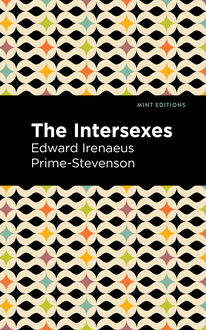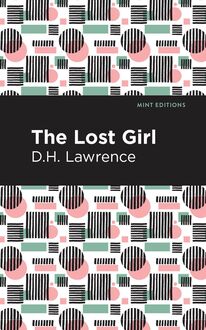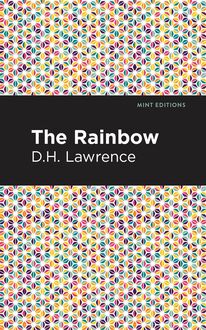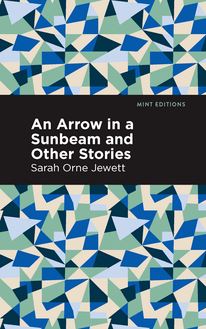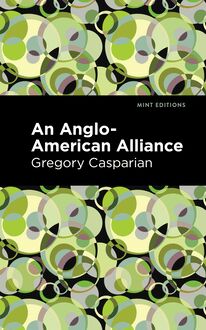-
 Univers
Univers
-
 Ebooks
Ebooks
-
 Livres audio
Livres audio
-
 Presse
Presse
-
 Podcasts
Podcasts
-
 BD
BD
-
 Documents
Documents
-
- Cours
- Révisions
- Ressources pédagogiques
- Sciences de l’éducation
- Manuels scolaires
- Langues
- Travaux de classe
- Annales de BEP
- Etudes supérieures
- Maternelle et primaire
- Fiches de lecture
- Orientation scolaire
- Méthodologie
- Corrigés de devoir
- Annales d’examens et concours
- Annales du bac
- Annales du brevet
- Rapports de stage
La lecture à portée de main
Vous pourrez modifier la taille du texte de cet ouvrage
Découvre YouScribe en t'inscrivant gratuitement
Je m'inscrisDécouvre YouScribe en t'inscrivant gratuitement
Je m'inscrisEn savoir plus
Vous pourrez modifier la taille du texte de cet ouvrage
En savoir plus

Description
Hauntings (1890) is a short story collection by Vernon Lee. Published at the height of her career as a leading proponent of Aestheticism and scholar of the Italian Renaissance, Hauntings collects four of her most chilling tales of the supernatural. Employing formal techniques to mimic diary and letter writing, Lee brings her reader face to face with the psychological unease embodied in her characters. A principled feminist and committed pacifist, Lee was virtually blacklisted by critics and publishers following her opposition to the First World War. Through the efforts of dedicated scholars, however, interest in her works has increased over the past several decades, granting her the readership she deserves as a master of literary horror. “They are things of the imagination, born there, bred there, sprung from the strange confused heaps, half-rubbish, half-treasure, which lie in our fancy, heaps of half-faded recollections, of fragmentary vivid impressions, litter of multi-colored tatters, and faded herbs and flowers, whence arises that odor (we all know it), musty and damp, but penetratingly sweet and intoxicatingly heady, which hangs in the air when the ghost has swept through the unopened door, and the flickering flames of candle and fire start up once more after waning.” Vernon Lee’s world is one where ghosts and humans walk together, often without taking notice of one another. In those instances when they do, however, strange and terrible things are likely to occur. The stories in this collection record such fateful encounters: a German academic becomes obsessed with a lady of the Italian Renaissance; a young girl is discovered alone on the Italian coast following a brutal storm; a painter grows uneasy at the resemblance of a subject to one of her distant ancestors; and a composer hears the voice of a famous castrato dead for centuries. Hauntings is a masterful work from the mind of Vernon Lee, one of history’s most terrifying storytellers. With a beautifully designed cover and professionally typeset manuscript, this edition of Vernon Lee’s Hauntings is a classic work of supernatural fiction reimagined for modern readers.
Sujets
Informations
| Publié par | Mint Editions |
| Date de parution | 03 août 2021 |
| Nombre de lectures | 0 |
| EAN13 | 9781513297149 |
| Langue | English |
| Poids de l'ouvrage | 1 Mo |
Informations légales : prix de location à la page 0,0450€. Cette information est donnée uniquement à titre indicatif conformément à la législation en vigueur.
Extrait
Hauntings
Vernon Lee
Hauntings was first published in 1890.
This edition published by Mint Editions 2021.
ISBN 9781513295640 | E-ISBN 9781513297149
Published by Mint Editions®
minteditionbooks.com
Publishing Director: Jennifer Newens
Design & Production: Rachel Lopez Metzger
Project Manager: Micaela Clark
Typesetting: Westchester Publishing Services
C ONTENTS P REFACE A MOUR D URE : P ASSAGES F ROM THE D IARY OF S PIRIDION T REPKA P ART I P ART II D IONEA O KE OF O KEHURST A W ICKED V OICE
P REFACE
We were talking last evening—as the blue moon-mist poured in through the old-fashioned grated window, and mingled with our yellow lamplight at table—we were talking of a certain castle whose heir is initiated (as folk tell) on his twenty-first birthday to the knowledge of a secret so terrible as to overshadow his subsequent life. It struck us, discussing idly the various mysteries and terrors that may lie behind this fact or this fable, that no doom or horror conceivable and to be defined in words could ever adequately solve this riddle; that no reality of dreadfulness could seem caught but paltry, bearable, and easy to face in comparison with this vague we know not what.
And this leads me to say, that it seems to me that the supernatural, in order to call forth those sensations, terrible to our ancestors and terrible but delicious to ourselves, skeptical posterity, must necessarily, and with but a few exceptions, remain enwrapped in mystery. Indeed, ’tis the mystery that touches us, the vague shroud of moonbeams that hangs about the haunting lady, the glint on the warrior’s breastplate, the click of his unseen spurs, while the figure itself wanders forth, scarcely outlined, scarcely separated from the surrounding trees; or walks, and sucked back, ever and anon, into the flickering shadows.
A number of ingenious persons of our day, desirous of a pocket-superstition, as men of yore were greedy of a pocket-saint to carry about in gold and enamel, a number of highly reasoning men of semi-science have returned to the notion of our fathers, that ghosts have an existence outside our own fancy and emotion; and have culled from the experience of some Jemima Jackson, who fifty years ago, being nine years of age, saw her maiden aunt appear six months after decease, abundant proof of this fact. One feels glad to think the maiden aunt should have walked about after death, if it afforded her any satisfaction, poor soul! but one is struck by the extreme uninterestingness of this lady’s appearance in the spirit, corresponding perhaps to her want of charm while in the flesh. Altogether one quite agrees, having duly perused the collection of evidence on the subject, with the wisdom of these modern ghost-experts, when they affirm that you can always tell a genuine ghost-story by the circumstance of its being about a nobody, its having no point or picturesqueness, and being, generally speaking, flat, stale, and unprofitable.
A genuine ghost-story! But then they are not genuine ghost-stories, those tales that tingle through our additional sense, the sense of the supernatural, and fill places, nay whole epochs, with their strange perfume of witchgarden flowers.
No, alas! neither the story of the murdered King of Denmark (murdered people, I am told, usually stay quiet, as a scientific fact), nor of that weird woman who saw King James the Poet three times with his shroud wrapped ever higher; nor the tale of the finger of the bronze Venus closing over the wedding-ring, whether told by Morris in verse patterned like some tapestry, or by M é rim é e in terror of cynical reality, or droned by the original mediaeval professional story-teller, none of these are genuine ghost-stories. They exist, these ghosts, only in our minds, in the minds of those dead folk; they have never stumbled and fumbled about, with Jemima Jackson’s maiden aunt, among the armchairs and rep sofas of reality.
They are things of the imagination, born there, bred there, sprung from the strange confused heaps, half-rubbish, half-treasure, which lie in our fancy, heaps of half-faded recollections, of fragmentary vivid impressions, litter of multi-colored tatters, and faded herbs and flowers, whence arises that odor (we all know it), musty and damp, but penetratingly sweet and intoxicatingly heady, which hangs in the air when the ghost has swept through the unopened door, and the flickering flames of candle and fire start up once more after waning.
The genuine ghost? And is not this he, or she, this one born of ourselves, of the weird places we have seen, the strange stories we have heard—this one, and not the aunt of Miss Jemima Jackson? For what use, I entreat you to tell me, is that respectable spinster’s vision? Was she worth seeing, that aunt of hers, or would she, if followed, have led the way to any interesting brimstone or any endurable beatitude?
The supernatural can open the caves of Jamschid and scale the ladder of Jacob: what use has it got if it land us in Islington or Shepherd’s Bush? It is well known that Dr. Faustus, having been offered any ghost he chose, boldly selected, for Mephistopheles to convey, no less a person than Helena of Troy. Imagine if the familiar fiend had summoned up some Miss Jemima Jackson’s Aunt of Antiquity!
That is the thing—the Past, the more or less remote Past, of which the prose is clean obliterated by distance—that is the place to get our ghosts from. Indeed we live ourselves, we educated folk of modern times, on the borderland of the Past, in houses looking down on its troubadours’ orchards and Greek folks’ pillared courtyards; and a legion of ghosts, very vague and changeful, are perpetually to and fro, fetching and carrying for us between it and the Present.
Hence, my four little tales are of no genuine ghosts in the scientific sense; they tell of no hauntings such as could be contributed by the Society for Psychical Research, of no specters that can be caught in definite places and made to dictate judicial evidence. My ghosts are what you call spurious ghosts (according to me the only genuine ones), of whom I can affirm only one thing, that they haunted certain brains, and have haunted, among others, my own and my friends’—yours, dear Arthur Lemon, along the dim twilit tracks, among the high growing bracken and the spectral pines, of the south country; and yours, amidst the mist of moonbeams and olive-branches, dear Flora Priestley, while the moonlit sea moaned and rattled against the moldering walls of the house whence Shelley set sail for eternity.
V ERNON L EE
M AIANO , near F LORENCE , June 1889
AMOUR DURE: PASSAGES FROM THE DIARY OF SPIRIDION TREPKA
PART I
Urbania, August 20th, 1885
I had longed, these years and years, to be in Italy, to come face to face with the Past; and was this Italy, was this the Past? I could have cried, yes cried, for disappointment when I first wandered about Rome, with an invitation to dine at the German Embassy in my pocket, and three or four Berlin and Munich Vandals at my heels, telling me where the best beer and sauerkraut could be had, and what the last article by Grimm or Mommsen was about.
Is this folly? Is it falsehood? Am I not myself a product of modern, northern civilization; is not my coming to Italy due to this very modern scientific vandalism, which has given me a traveling scholarship because I have written a book like all those other atrocious books of erudition and art-criticism? Nay, am I not here at Urbania on the express understanding that, in a certain number of months, I shall produce just another such book? Dost thou imagine, thou miserable Spiridion, thou Pole grown into the semblance of a German pedant, doctor of philosophy, professor even, author of a prize essay on the despots of the fifteenth century, dost thou imagine that thou, with thy ministerial letters and proof-sheets in thy black professorial coat-pocket, canst ever come in spirit into the presence of the Past?
Too true, alas! But let me forget it, at least, every now and then; as I forgot it this afternoon, while the white bullocks dragged my gig slowly winding along interminable valleys, crawling along interminable hill-sides, with the invisible droning torrent far below, and only the bare grey and reddish peaks all around, up to this town of Urbania, forgotten of mankind, towered and battlemented on the high Apennine ridge. Sigillo, Penna, Fossombrone, Mercatello, Montemurlo—each single village name, as the driver pointed it out, brought to my mind the recollection of some battle or some great act of treachery of former days. And as the huge mountains shut out the setting sun, and the valleys filled with bluish shadow and mist, only a band of threatening smoke-red remaining behind the towers and cupolas of the city on its mountain-top, and the sound of church bells floated across the precipice from Urbania, I almost expected, at every turning of the road, that a troop of horsemen, with beaked helmets and clawed shoes, would emerge, with armor glittering and pennons waving in the sunset. And then, not two hours ago, entering the town at dusk, passing along the deserted streets, with only a smoky light here and there under a shrine or in front of a fruit-stall, or a fire reddening the blackness of a smithy; passing beneath the battlements and turrets of the palace… Ah, that was Italy, it was the Past!
August 21st
And this is the Present! Four letters of introduction to deliver, and an hour’s polite conversation to endure with the Vice-Prefect, the Syndic, the Director of the Archives, and the good man to whom my friend Max had sent me for lodgings…
August 22nd–27th
Spent the greater part of the day in the Archives, and the greater part of my time there in being bored to extinction by the Director thereof, who today spouted Aeneas Sylvius’ Commentaries for three-quarters of an hour without taking breath. From this sort of martyrdom (what are the se
-
 Univers
Univers
-
 Ebooks
Ebooks
-
 Livres audio
Livres audio
-
 Presse
Presse
-
 Podcasts
Podcasts
-
 BD
BD
-
 Documents
Documents
-
Jeunesse
-
Littérature
-
Ressources professionnelles
-
Santé et bien-être
-
Savoirs
-
Education
-
Loisirs et hobbies
-
Art, musique et cinéma
-
Actualité et débat de société
-
Jeunesse
-
Littérature
-
Ressources professionnelles
-
Santé et bien-être
-
Savoirs
-
Education
-
Loisirs et hobbies
-
Art, musique et cinéma
-
Actualité et débat de société
-
Actualités
-
Lifestyle
-
Presse jeunesse
-
Presse professionnelle
-
Pratique
-
Presse sportive
-
Presse internationale
-
Culture & Médias
-
Action et Aventures
-
Science-fiction et Fantasy
-
Société
-
Jeunesse
-
Littérature
-
Ressources professionnelles
-
Santé et bien-être
-
Savoirs
-
Education
-
Loisirs et hobbies
-
Art, musique et cinéma
-
Actualité et débat de société
- Cours
- Révisions
- Ressources pédagogiques
- Sciences de l’éducation
- Manuels scolaires
- Langues
- Travaux de classe
- Annales de BEP
- Etudes supérieures
- Maternelle et primaire
- Fiches de lecture
- Orientation scolaire
- Méthodologie
- Corrigés de devoir
- Annales d’examens et concours
- Annales du bac
- Annales du brevet
- Rapports de stage

